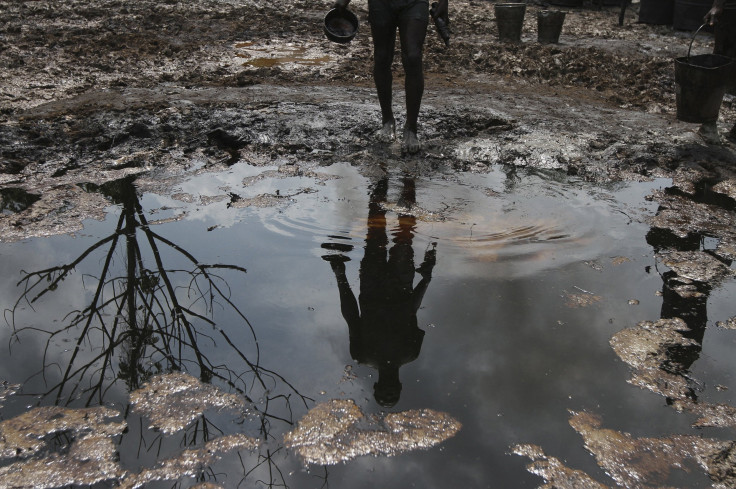Behind Bars For Bunkering: Nigerian Oil Thieves To Face Prosecution For Siphoning Fuel

Nigeria's oil thieves are about to have their day in court. Government officials announced this week that 500 people detained on charges of illegally tapping into the country's lucrative oil pipelines will soon be prosecuted. Oil thieves in Nigeria tend to conduct their business in swamps, under cover of the mangrove trees that thrive in the salty waters of the southern coastline. They puncture pipelines to siphon the crude that flows inside, filling up their tanks for free in a process known as "bunkering." Most of that fuel is sold abroad, but some of it is refined in makeshift facilities and peddled domestically.
Delta State Governor Emmanuel Uduaghan announced the impending initiation of prosecution to Reuters after a meeting with Nigerian President Goodluck Jonathan on Thursday. “The resolutions included that a legal task force ... be set up immediately to commence prosecution of proven cases, using relevant laws,” Uduaghan said.
According to the latest Oil Market Report from the International Energy Agency, purposeful sabotage is the most common cause of costly pipeline damages and oil leaks; in fact, Nigeria loses about $7 billion annually to oil theft and illicit refining. That's partly why the country's oil output hit its lowest point in two years -- about 1.95 million barrels per day -- although it still boasts the highest national output in all of Africa.
Foreign oil companies are also feeling the effects of oil theft. Royal Dutch Shell PLC (NYSE:RDS.A) has already shut down its Trans-Niger Pipeline twice this month as a result of leaks caused by bunkerers. The issue is complicated by Nigeria's failure to translate its booming oil revenues into real development for its 163 million people. Although Nigeria has a gross domestic product of about $245 billion -- Africa's second largest -- more than half the population lives in poverty. The government has been accused of gross fiscal mismanagement and endemic corruption. Oil, the source of 65 percent of budgetary revenues, is at often the center of Nigerian political discourse.
The government, however, is adamant that even if oil revenues do need to be spent more effectively, thievery isn't the best way to spread the wealth. Meanwhile, the 500 people awaiting prosecution could face sentences of up to 21 years.
© Copyright IBTimes 2024. All rights reserved.





















